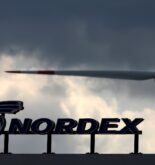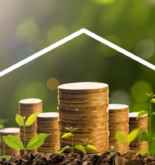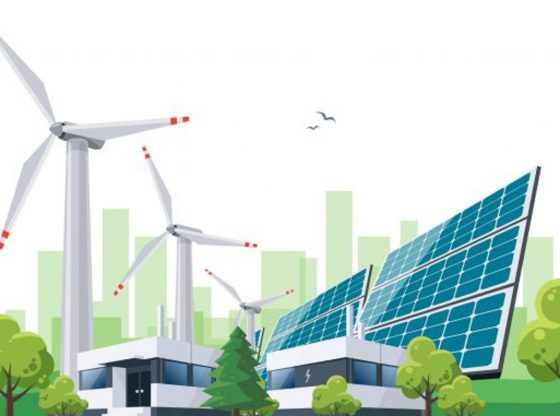Mr Aurélien Boyer is the Regional Business Manager, West Africa, Greenlight Planet. He holds MBA from ESSEC Business School – Paris, Singapore — with majors in Social Entrepreneurship and Marketing. The Frenchman opens up on his vision for the company in this interview with ENERGY WORTH. Excerpt
Can you tell us a brief history of your company?
Greenlight Planet is global, socially driven business, launched in 2009, with a mission to serve a large consumer group that is often overlooked and underserved: households that live entirely off the grid or are unreliably connected to the grid. Two billion people fit this description across the globe, and for them, we design, distribute and finance reliable, affordable solar home lighting and energy solutions under our consumer brand, Sun King. We employ nearly 1,000 full time staff and more than 6,000 direct sales agents in eleven countries, to bring our solutions to consumers in more than 65 countries, mostly in Asia and Africa. We’ve sold more than eight million Sun King systems to date.
We have installed more than 18 million watts of rooftop solar around the world, generating 18.27 megawatts of power and offsetting nearly 1.39 million MT of greenhouse gas emissions. While these numbers sound impressive, our early stage industry has a long way to go. We continuously innovate to create more products and design innovative distribution and financing options to reach the 300 million plus households that still lack reliable access to energy. In Nigeria alone, 80 to 90 million people lack access to the public grid, and most households cannot afford a generator or the running fuel costs to meet even basic energy needs.
Your company was founded in 2009 and you currently have offices in eight countries in the world and distributors in more than 65 African, Asian and Central American nations. Can you tell us what has contributed to these achievements?
The greatest energy access needs are widely dispersed across Africa and Asia, and from the beginning, it was imperative to figure out how to extend our reach far and wide. While we started out by building a very rural, last mile direct sales channel in the northern and eastern parts of India, we knew it would take far too long to scale this approach around the world. Instead, we started establishing partnerships with distribution businesses, micro-finance banks, direct sales networks and organizations that are already well-established and well connected to our target consumers across Africa and Asia. Over the course of the last nine years, we have nurtured 600 such distribution partners in more than 65 countries.
We introduced Sun King to Nigeria in early 2011 through a few strong partnerships and have grown significantly since then: Sun King products are in 500+ Total filling stations across the country and in early 2017, we opened our first office in Lagos to accelerate growth in the market. One year in, we already have 60 full time employees and 300 active agents in country along with 26 distributors and 1,600 active retailers across thirteen states.
One key factor that has contributed to our rapid growth across so many markets is our sustained reputation for producing extremely high-quality products. We invest heavily in long-lasting technology and our Research and Development team continuously seeks to incorporate cutting-edge technology into our product designs. We know that households rely on and make significant investments in Sun King products; many of them live far from markets and technical shops, and they cannot afford to go without light at home. To solve for this, we have built an extremely robust quality assurance process, invested in the highest quality five-year life lithium-based battery technology and offer a two-year warranty to ensure consumers know their investments in Sun King products are protected. All of our products meet the internationally accepted Lighting Global quality test method standards, and Sun King products are generally recognized in the industry for being the highest performing products in their price category.
You have a wide range of products including the Sun King Solar lamp, home energy system with pay-as-you-go plan, how are you doing this considering the economic reality. Are the people credit worthy?
We created EasyBuy, our version of ‘pay-as-you-go’ technology to reach even the most cash-constrained households. Sun King EasyBuy products come embedded with technology that enables consumers to pay for their products through an installment plan; with each incremental payment, the customer receives a code to key in and ‘unlock’ his/her Sun King product for a specific amount of time. If a customer skips a payment, the product doesn’t work, but as soon as the customer ‘tops up’, it will turn back on. At the end of the installment plan, the product is perpetually unlocked and free to use daily.
Your presence in Africa has really changed the renewable energy stories, making available affordable light even to the rural dwellers. What are the challenges faced in this area?
Our products make an immediate, positive impact on our customers’ lives: school-children have bright, clean light to read with, and studies have shown that the quality of their study has improved as a result; business owners can keep their stores open longer, families report safer, cleaner air in their households. Our customers are often our best marketers; their positive words intrigue and inspire other community and family members to purchase Sun King products for their homes and businesses.
However, one of the greatest challenges we face is getting our products into all the under-electrified areas that need them. The majority of the world’s off-grid population lives in remote, rural areas surrounded by limited road infrastructure, so our greatest task is figuring out reliable, affordable ways to bring Sun King products to these communities. Our distribution partnership strategy is key to solving for this; the more relevant retailers, rural financing institutions and regional companies we can add to our reseller network, the more likely we are to get within reasonable reach of every under-electrified Nigerian home.
The other great challenge we face is helping people understand the difference between low-quality solar products and trust a credible brand. Many people have had a bad experience with their first purchase of a low quality solar lamp; when the product breaks and the retailer can’t fix it, they sometimes distrust the concept of solar powered energy, instead of the mere low-quality brand they patronized. We must work extra hard to illustrate how our products are designed to last and showing the kind of customer support they have access to with Sun King, from a customer care telephone line, to service counters at Total petrol stations and Sun King branded shops across the country.
Some African markets have taken strict measures to ban or prevent these sub-standard products from coming into the market by mandating that all solar lighting solutions meet the globally recognized Lighting Global quality standards. Places like Kenya, Ethiopia and Uganda recognize the importance of ensuring under-connected households access high quality home energy solutions, and these regulations help. It would be great if Nigeria adopted the same approach! These same markets allow high quality solar energy products to be imported exempt of duties and VAT, making clean energy alternatives to kerosene or other fuel-based lighting much more affordable.
How do you get funding for your projects?
We have raised private equity and debt financing to scale our business; however, unlike many of our peers, we already operate in a sustainable and profitable way, meaning our existence is not entirely dependent on outside financing.
As a leading global provider of solar energy products to over 40 million rural consumers, do you deal directly with consumers?
Our agents are in direct contact with our clients, whether it is through our Easy Buy solution or through our partnerships. For example, we currently have a partnership with LAPO Microfinance Bank in Nigeria, the largest microfinance bank in Africa. Our field team visit their groups of borrowers, engage them, do product demonstrations and educate them on their benefits and how they work while they get a loan from LAPO to buy and pay back weekly or monthly and through that, we are making life more comfortable for our customers.
Study has shown that solar energy is expensive if considered for manufacturing or industrial use. What do you think is responsible for this?
I do not think I can answer on the manufacturing or industrial use per se as our products are basically home solutions. However, we came to realize that our clients use our products for business a lot: they can use them for business centers, lighting small shops, charge phones and charge for it, play music with our radio lamp in barber shops, etc. Some even share a home system with three lamps among three businesses. We are this close to have a consensus that Solar is a reliable power solution especially for a country like Nigeria, who has a sun advantage. Solar is the energy of the present. More generally, the components of solar products like LED lights, lithium-ion batteries, solar cells are getting cheaper and smaller by the day thanks to investments across the globe. Take for example the giga-factory of Tesla producing batteries for their electric cars. They’re bringing the costs down big time. And isn’t Apple going to have a fully solar powered head office soon in the US? I believe we should see this sea change reaching the manufacturing and industrial world sooner than expected.
You are doing a great job in meeting the needs of the off-grid market; don’t you think on-grid will be less attractive to electricity consumers? What is the future of on grid?
While our major focus is the off-grid population, we also target people who have access to an unreliable source of power. For example, a large share of our clients in urban Nigeria do have access to public power but still use our products. This shows that our home solutions are adapted to their needs. Regarding the future of the on-grid, things may change in Nigeria. Today for example, the use of generator is very common. But do you know that we are working with a partner that sells gens and are now turning to solar energy? I believe that soon enough, solar power will be the first choice for Nigerians.
In what areas do you think the government can assist your company?
I believe the government is moving towards the right direction. I can only re-emphasize on a needed stronger effort in implementing low custom rates for solar would go a long way for rural customers of solar power. Also, a tax friendly environment for us to set up a factory here – which could create hundreds of jobs – would go a long way. Finally, setting the Lighting Global certification of quality products as the sole standard importable in the country for solar powered lamps and home kits would be greatly beneficial to end-users and their access to sustainable sources of lighting and energy.






